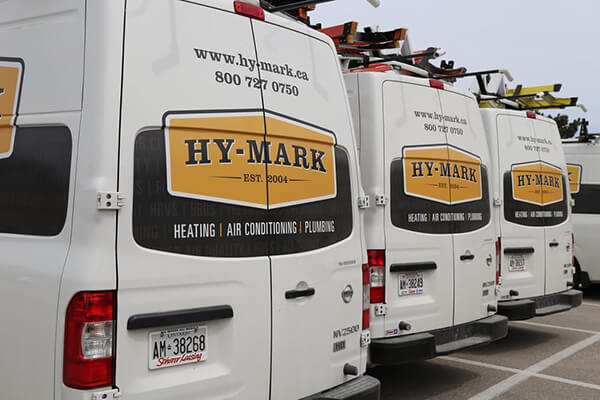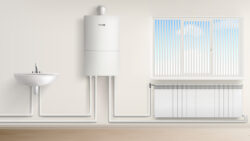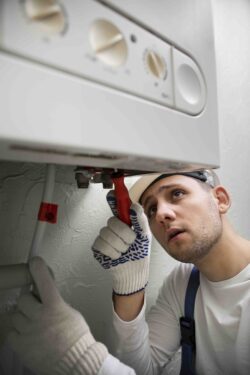
Hot water is essential for daily tasks like bathing, washing dishes, and laundry. However, hot water heaters do not last forever and can malfunction and become inefficient over time. Here are some signs that indicate you may need a new hot water heater.
1. Age: The average lifespan of a hot water heater is around 8-12 years. If yours is approaching or over this age range, it may be time to consider a replacement.
2. Rust and Corrosion: Over time, hot water heaters can develop rust and corrosion, especially on the bottom of the tank. This can cause leaks and damage to your home. If you notice rust or corrosion on your hot water heater, it may be time to replace it.
3. Noisy Tank: As hot water heaters age, sediment can build up at the bottom of the tank, causing it to make loud popping or cracking noises. If yours is making a lot of noise, it may be time to replace it.
4. Inadequate Hot Water: If your hot water heater is not producing enough hot water for your household’s needs, it may be time to consider a replacement. A new, more efficient heater can provide more hot water and save you money on energy costs.
5. High Energy Bills: Older hot water heaters can be inefficient, causing your energy bills to increase. If you notice a sudden increase in your energy bills, it may be time to replace your hot water heater.
If you notice any of the above signs, it may be time to replace your heater. A new hot water heater can provide more efficient, reliable hot water for your home and save you money on energy costs in the long run.
When To Replace My Water Heater?
Most people will only pick out a replacement water heater roughly every 10 years. Even if you’ve done it before, with technology changing and more options becoming available, you will have new things to consider if you are entering the market today.
Let’s take a look at the determining factors and break down your options:
Hot Water Runs Out
No one wants to run out of hot water in the middle of a shower. But with a traditional storage-tank water heater, that’s a possibility. These heaters can only heat what they can hold, so if you run through your whole tank’s capacity, you’ll be waiting while it refills and heats up more water.
If you’re not willing to risk running out of hot water for bathing, dishes and laundry, you might consider tankless water heaters. These models heat your water as needed, so you won’t risk gaps of lukewarm water while a reservoir is being heated.
The good news is that despite a lot of misinformation out there, a tankless water heater can provide a similar flow rate to a traditional tank. This is because no matter what kind of water heater you have, the pipes carrying heated water from it are now different.
Improved Energy Efficiency
Did you know your water heater is the second most energy consuming appliance in your home? Water heating currently accounts for almost 20% of the average household’s energy usage, second only to the cost of space heating.
As Hydro costs balloon in Ontario, electric options are becoming less and less attractive next to natural gas. Gas-fueled models have a much higher initial cost (roughly 2-3X as much), but even so, you will save money in the long run on operation costs, not to mention saving the environment some

wear and tear. Of course, energy costs can always fluctuate – things may look very different in 5 or 10 years. The best things you can do are stay informed of energy trends, and buy the most efficient equipment you can. (Our John Wood Envirosense® is one of the most energy-efficient water heaters on the market.)
One way to keep operation costs as low as possible is by making sure you have the correct sized heater (if you go with a tank model). You don’t want a tank that is too small or too big.
Another thing to keep in mind is whether your lifestyle creates low, average, or high water consumption, and is it concentrated within short time frames or spread throughout the day? For most people, hot water is used in the morning and evening.
Remember that a tank is being heated all day and all night, even when you will not be running any water. A tankless only heats water on demand, when you need it.
Tank vs. Tankless Water Heater Lifespan
Tank water heaters generally are expected to last 8-12 years, whereas tankless water heater lifespans are closer to 20+ years. However, how long a water heater lasts depends greatly on its use, care and environment.
The most common environmental factor to affect water heaters is water with high mineral content, such as that in much of Southwestern Ontario (you’ll notice Kitchener has the highest hardness on this whole list). Though not an issue for tankless models, hard water can leave scale build up in a tank, reducing efficiency and leading to breaking down over time.
You can combat this problem by caring for your equipment by installing a water softener. Softened water is much gentler on your water heater, as well as your fixtures and pipes. You should also have a water heater maintenance where the tank is fully drained semi-regularly.
Heat Pump Water Heater
This eco-friendly alternative utilizes heat pump technology to efficiently heat your water, offering a range of benefits for your home and the environment.
Pros:

Energy Efficiency: Heat pump water heaters can significantly reduce energy consumption compared to traditional electric water heaters. By harnessing ambient heat from the surrounding air, they use up to 50% less energy, leading to lower utility bills and reduced carbon emissions.
Cost Savings: While the initial investment may be higher than conventional water heaters, the long-term savings on energy costs can make up for it. Many homeowners find that the energy savings outweigh the upfront expense over time.
Environmental Impact: By utilizing renewable energy sources, such as air heat, heat pump water heaters help reduce reliance on fossil fuels and decrease greenhouse gas emissions, contributing to a greener planet.
Versatility: Heat pump water heaters are versatile and can be installed in various locations, including basements, garages, and utility rooms. They operate efficiently in both warm and cool climates, making them suitable for a wide range of households.
Cons:
Upfront Cost: The initial purchase and installation cost of a heat pump water heater may be higher than traditional models. However, the long-term energy savings can offset this expense over time.
Space Requirements: Heat pump water heaters typically require more space for installation compared to traditional water heaters due to their larger size and ventilation

needs. Ensure you have adequate space available before making the switch.
Performance in Cold Climates: In colder climates, the efficiency of heat pump water heaters may decrease, as they rely on extracting heat from the surrounding air. Supplemental heating may be needed during extreme cold weather conditions to maintain optimal performance.
Consider making the switch to a heat pump water heater and enjoy long-term savings and sustainability for your home!
Water Heater Installation
A decision between tankless and tank models will sometimes be made for you based on the amount of available space. Tankless models are significantly smaller than tanks, so can be placed in much tighter areas.
Installation and placement code requirements will affect the venting type. The breakdown of most common vent types is: direct, conventional, and power vented. These distinctions have to do with the tank’s proximity to chimneys or outside vents and the best method to move and clear exhaust outside the home. Power vents have an electric fan that can push exhaust a farther distance than a conventional vent can. Direct vented heaters draw air from outside the home whereas conventional draws from inside. Your home will require an inspection by a trained technician to determine which vent type is appropriate.
Cost to Repair a Water Heater
One reason that tankless water heaters last so long is they don’t deal with the burden of standing water. No matter how pure your water, over time it has corrosive properties on metal and electronics. The gas valve and sacrificial anodes are typical parts that need to be replaced within the lifespan of a tank water heater. And concerning manufacturer warranty periods, tanks usually have a 5-year warranty on the gas valves and 8 years’ coverage on the tank body. For a tankless, the heat exchanger (the main component of the unit) usually has warranty coverage of 15 years.
These are all factors to keep in mind when choosing a new water heater. For more information, our Comfort Advisors are happy to assist. We offer free in-home consultations and quotes.
Hy-Mark also offers affordable rental options as well as financing for buyouts in all models and sizes of water heater. To learn more call us at (226) 917-2686 today about your options for water tank installation and repair.
Plus, ask us about our financing and rental options through FinanceIt!
